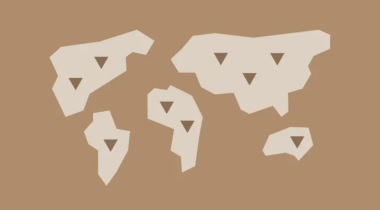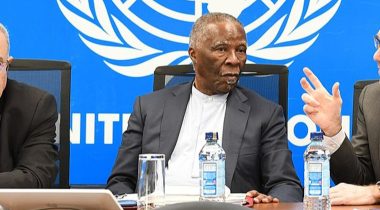
Naomi Fowler ■ Public inquiry says Maltese State is ‘responsible for Daphne Caruana Galizia’s death’

After a long fight by the family of murdered journalist and anti-corruption champion Daphne Caruana Galizia, their lawyers and supporters, the public inquiry the Maltese government never wanted has now reported on its findings and has made recommendations. As the Daphne Caruana Galizia Foundation explains:
The Maltese Government only agreed to establish the public inquiry, over two years after the assassination, under threat of legal proceedings from the family and in the face of international pressure.“
The Foundation has made the following statement:
The inquiry’s findings confirm the conviction our family held from the moment Daphne was assassinated: that her assassination was a direct result of the collapse of the rule of law and the impunity that the State provided to the corrupt network she was reporting on. We hope that its findings will lead to the restoration of the rule of law in Malta, effective protection for journalists, and an end to the impunity that the corrupt officials Daphne investigated continue to enjoy. Daphne and her work will live on in ensuring that the recommendations of this Inquiry effect lasting change.”
The Daphne Caruana Galizia Foundation has prepared an informal translation of part of the report, available here.
The report makes many recommendations, on the urgent need to transform the relationship between business and government, the police force, and to protect journalists. Here are a few of the reactions:
Malta has long displayed all the marks of a nation suffering from the finance curse – state capture and corruption of democracy through an aggressive, over-sized finance sector model, with financial secrecy at its heart. According to retired judge Michael Mallia, former chief justice Joseph Said Pullicino and Madam Justice Abigail Lofaro in their public inquiry report:
The state should shoulder responsibility for the assassination,…[there was] an atmosphere of impunity, generated from the highest echelons of the administration inside Castille, the tentacles of which then spread to other institutions, such as the police and regulatory authorities, leading to a collapse in the rule of law”.
As the Times of Malta reports,
while the inquiry did not find proof of government involvement in the assassination, it created a “favourable climate” for anyone seeking to eliminate her to do so with the minimum of consequences.”
We interviewed one of Daphne’s sons Paul Caruana Galizia on our podcast the Taxcast this month, where he spoke about the capture of Malta and the fight for justice. You can read a transcript of the full interview here, but here’s an excerpt:
Believe me when I say there aren’t many areas where the two major parties in Malta come to an agreement, but they agreed on this one thing – do not threaten the stability of the financial sector. And so it almost became beyond criticism, you know, whatever you do, you just don’t threaten finance. And that only became more of a thing as the financial sector took up an increasingly larger share of the economy.
I’d say for my mother…the really big problems became apparent, say 2013, around that point when there was a step change, when there was a change in government, and there was this radical liberalisation and deregulation of the financial sector…the country just went down this very aggressive, hyperfinancialisation, hyper-development route, with an aim to one day become like Dubai, you know, like a hyper-financialised, hyper-globalised city state…
The amazing thing about my mother’s career is that she went from reporting on domestic corruption, which at the time was say, a corrupt judge, a corrupt MP, corrupt prime minister, to almost imperceptibly reporting on globalised corruption, you know, from reporting on bribery at a level of say 20,000 euros to reporting on bribery of tens of millions of euros,..ultimately because of secret companies, because anonymous shell companies are really the key.
The Panama Papers leak, that kind of cracked this wall of secrecy that she kept hitting at, hitting at, hitting at until the crack opened up letting in more light, say, that she could suddenly see what was happening behind the wall. And the moment, it’s amazing, that the moment she got there, right, she got to the final company and she said, ‘this is it. I just need to find the name’, she was murdered. And, you know, the person who murdered her made the calculation that there was only one person who could have got the name of the company, ‘and now she’s dead, I had her murdered, so I’m safe.’ But through another series of accidents, he was, he was found out. But that, you know, the murder was to protect a secret, the shell company, so to protect the secrets of massive corruption.
My view is really straightforward, that the privacy arguments for anonymous shell companies are far outweighed by the public interest argument against them. And I just don’t think they should exist anywhere in any form. But before we get there, I think there are serious reforms that need to be made of the sectors that we call enablers, the accountants, the lawyers, the fixers, I think, I think it’s crazy that they can open up shell companies for politicians and oligarchs in this way, and we’re somehow meant to say, ‘hey, that’s their job.’ I just think that’s unacceptable.”
(You can find our podcast the Taxcast on your podcast app and the website is here.)
We were honoured that the Caruana Gailizia family accepted the Anderson-Lucas-Norman Award for Tax Justice Heroism at our recent virtual annual conference on tax justice and human rights, which you can view and read about here.
Our award is named after Jean Anderson, Pat Lucas and Frank Norman, three Jersey islanders who were among the first to challenge the financial sector’s state capture of Jersey, sparking the global tax justice movement. This award honours the people or person we believe has made the most significant contribution to tax justice and financial transparency. It seeks to recognise heroic work in the fight for tax justice. We presented that award to the Caruana Galizia family, which was accepted here by Daphne’s son Paul Caruana Galizia:
The Daphne Caruana Galizia Foundation speaks of ‘light after darkness.’ Paul Caruana Galizia told us in our podcast:
In Malta’s case the story is far from over. A lot of the changes that need to happen in the country have yet to happen. My mother’s case is still ongoing, journalists still operate in a highly threatening environment. But the country, if we grow out of this, rather than end up suffering even more from it, will, we hope provide an example to a lot of other jurisdictions around the world that find themselves stuck in this trap where they think corruption will always be with them, that they will never grow out of this financial sector dominance. I hope that will emerge from this as a positive example against those issues.”
Related articles

The Financial Secrecy Index, a cherished tool for policy research across the globe

Vulnerabilities to illicit financial flows: complementing national risk assessments

Do it like a tax haven: deny 24,000 children an education to send 2 to school

Tax Justice transformational moments of 2024

Did we really end offshore tax evasion?
The State of Tax Justice 2024

Indicator deep dive: ‘Royalties’ and ‘Services’

Indicator deep dive: Public country by country reporting
How ‘greenlaundering’ conceals the full scale of fossil fuel financing
11 September 2024


